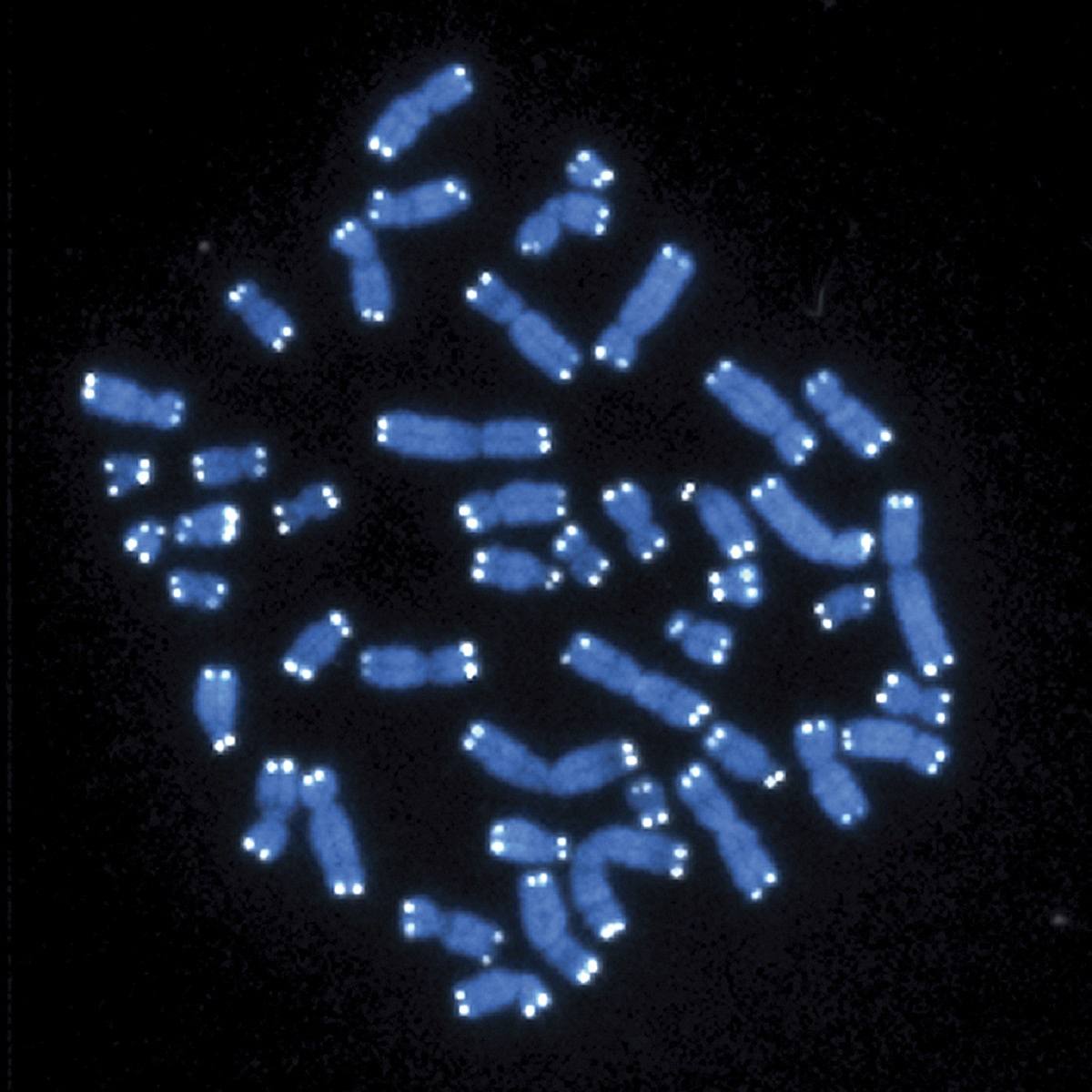Researchers Find a Single, Surprising Gene behind a Disorder that Causes Intellectual Disability

This microscope image shows the 46 human chromosomes, blue, with telomeres appearing as white pinpoints.
11:43 JST, June 1, 2024
Scientists have found the genetic root of a disorder that causes intellectual disability, which they estimate affects as many as one in 20,000 young people. And they hope their discovery leads to a new diagnosis that can provide answers to families.
Those with the condition have a constellation of issues, which also include short stature, small heads, seizures and low muscle mass, said the researchers, who published their findings in the journal Nature Medicine on Friday.
“We were struck by how common this disorder is” when compared with other rare diseases linked to a single gene, said Ernest Turro of the Icahn School of Medicine at Mount Sinai, senior author of the study.
Syndromes like these can go unnoticed because the traits are sometimes so subtle doctors can’t recognize them by just looking at patients, said Dr. Charles Billington, a pediatric geneticist at the University of Minnesota who was not involved in the study.
“So certainly this wasn’t something that we necessarily had a name for,” he said. “We’re learning more about these syndromes that we recognize only once we are seeing the cause.”
Researchers said the mutations occurred in a small “non-coding” gene, meaning it doesn’t provide instructions for making proteins. Until now, all but nine of the nearly 1,500 genes known to be linked to intellectual disability in general are protein-coding genes. Most large genetic studies so far have used a sequencing technology that typically leaves out genes that don’t code for proteins.
This study used more comprehensive “whole-genome” sequencing data from 77,539 people enrolled in the British 100,000 Genomes Project, including 5,529 with an intellectual disability. The rare mutations researchers found in the gene, called RNU4-2, were strongly associated with the potential to develop intellectual disability.
The finding “opens the door to diagnoses” for thousands of families, said study author Andrew Mumford, research director of the South West England NHS Genomic Medicine Service.
More research is needed, Mumford said. How the mutation causes the disorder remains unclear and there is no treatment. But Billington said labs should be able to offer testing for this condition relatively quickly. And researchers said families should be able to find and support each other – and know they’re not alone.
“That can be incredibly comforting,” Mumford said.
"News Services" POPULAR ARTICLE
-

American Playwright Jeremy O. Harris Arrested in Japan on Alleged Drug Smuggling
-

Japan’s Nikkei Stock Average as JGB Yields, Yen Rise on Rate-Hike Bets
-

Japan’s Nikkei Stock Average Licks Wounds after Selloff Sparked by BOJ Hike Bets (UPDATE 1)
-

Japanese Bond Yields Zoom, Stocks Slide as Rate Hike Looms
-

Japan’s Nikkei Stock Average Buoyed by Stable Yen; SoftBank’s Slide Caps Gains (UPDATE 1)
JN ACCESS RANKING
-

Keidanren Chairman Yoshinobu Tsutsui Visits Kashiwazaki-Kariwa Nuclear Power Plant; Inspects New Emergency Safety System
-

Imports of Rare Earths from China Facing Delays, May Be Caused by Deterioration of Japan-China Relations
-

University of Tokyo Professor Discusses Japanese Economic Security in Interview Ahead of Forum
-

Japan Pulls out of Vietnam Nuclear Project, Complicating Hanoi’s Power Plans
-

Govt Aims to Expand NISA Program Lineup, Abolish Age Restriction

























